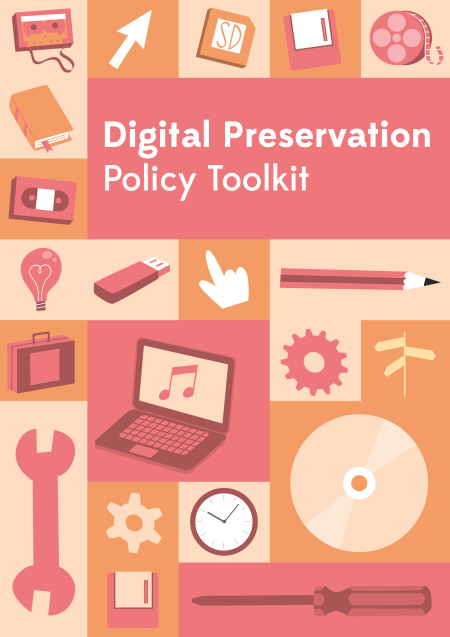The Digital Preservation Coalition (DPC) has released a new resource designed to assist its members in the construction of a digital preservation policy.
Exclusively for DPC Member institutions and developed with a team from the University of Bristol, the Digital Preservation Policy Toolkit guides users from initial research and preparation phases, through to drafting a policy, gathering feedback and communicating the finished policy.
 DPC Members, login to access the Digital Preservation Toolkit
DPC Members, login to access the Digital Preservation Toolkit
Designed for organisations of any type, the toolkit first recognises why a digital preservation policy is important, before identifying the components of a successful document and providing a step by step guide, template and a list of helpful resources.
“There is no one-size-fits-all formula for writing a digital preservation policy,” explains Paul Wheatley, DPC’s Head of Research and Practice. “How you write your policy depends on your own context and needs to take account of the intended audience and purpose, the drivers within your organization and its digital preservation maturity. This Toolkit seeks to guide Members through a process which will help them to understand this organizational context, and then communicate a policy that is fully relevant to it.”
The idea of creating a Digital Preservation Policy Toolkit came from the University of Bristol’s request for help in creating their own organizational digital preservation policy. Rather than creating just one policy for one member, the DPC decided to assemble a team of digital preservation experts and staff to create a Policy Toolkit which would become available to all Coalition members.
The structure and content of the Toolkit was created in a three-day workshop that followed the format of a Book Sprint. The Sprint drew on an array of experience and resources that were gained throughout the SPRUCE Project as well as from the collaborative development of resources including the Digital Preservation Handbook and Executive Guide on Digital Preservation.
During this process staff from the University of Bristol were able to create a specific policy for their institution.
“The Sprint method was found to be an excellent way of putting the policy together,” says Emma Hancox, Digital Archivist at the University of Bristol.
“Domain specialists created written guidance on how to approach each section of a digital preservation policy, forming the basis of the Toolkit. As soon as the guidance was written, the Bristol group used it to write our own policy, giving feedback to the specialists on its usefulness for each area. This feedback was taken on board and the Toolkit content refined. In this way, writing the toolkit was a truly iterative and dynamic process.”
The not-for-profit DPC is an international advocate for digital preservation, helping members around the world to deliver resilient long-term access to digital content and services through community engagement, targeted advocacy work, training and workforce development, capacity building, good practice and standards, and through good management and governance. The Digital Preservation Policy Toolkit is just one in a suite of resources designed to support DPC Members in their digital preservation practice.
DPC Members, login to access the Digital Preservation Toolkit
See also:
- Digital Preservation Handbook
- DPC Rapid Assessment Model
- Executive Guide on Digital Preservation
- Technology Watch Series
- Novice to Know-How Training









































































































































